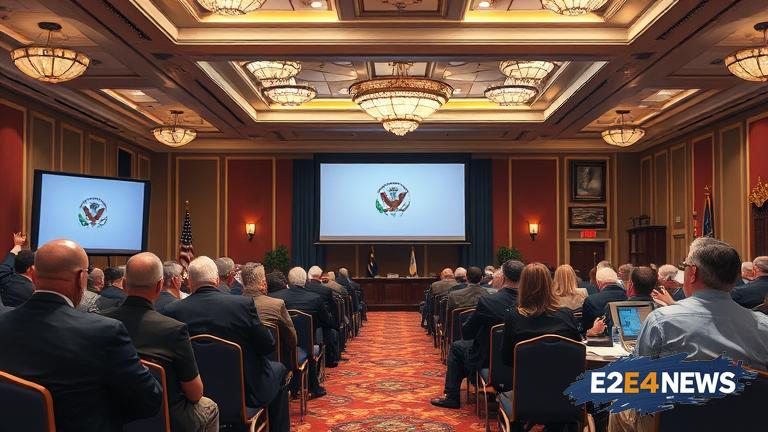The National Conference of State Legislatures (NCSL) summit commenced on August 4, 2025, with a sense of urgency and concern. The event, which brings together lawmakers from across the United States, was marked by a somber tone, as attendees acknowledged the rising threat of polarization in the country. Experts and lawmakers alike warned about the dangers of polarization, citing its potential to undermine democratic institutions and exacerbate social divisions. The summit’s opening session featured a keynote address by a renowned expert on polarization, who emphasized the need for bipartisan cooperation and civic engagement. The speaker highlighted the importance of fostering a culture of respect and empathy, particularly in the face of intense partisan disagreements. Lawmakers from both sides of the aisle echoed these sentiments, acknowledging that polarization has become a major obstacle to effective governance. Many attendees expressed concern about the impact of polarization on marginalized communities, who often bear the brunt of divisive rhetoric and policies. Others noted that polarization has led to a decline in civil discourse, making it increasingly difficult to find common ground and pass meaningful legislation. Despite these challenges, the NCSL summit offered a platform for lawmakers to engage in constructive dialogue and explore potential solutions to the polarization crisis. Attendees participated in workshops and panel discussions focused on topics such as civic education, media literacy, and conflict resolution. These sessions aimed to equip lawmakers with the tools and strategies needed to build bridges across party lines and promote a more inclusive, respectful political culture. The summit also featured a series of presentations on the latest research and data on polarization, providing attendees with a deeper understanding of the complex factors driving this phenomenon. Experts from various fields, including psychology, sociology, and political science, shared their insights on the root causes of polarization and its consequences for American democracy. As the summit progressed, lawmakers and experts alike emphasized the need for collective action to address the polarization crisis. Many called for a renewed commitment to bipartisan cooperation, civic engagement, and community outreach. Others proposed innovative solutions, such as citizen-led initiatives and social media campaigns, to promote greater understanding and empathy across party lines. The NCSL summit served as a timely reminder that polarization is a soluble problem, requiring the collective efforts of lawmakers, experts, and citizens from all walks of life. By working together and engaging in constructive dialogue, Americans can build a more inclusive, respectful, and effective democracy. The summit’s message of hope and cooperation resonated with attendees, who left the event feeling inspired and motivated to tackle the challenges of polarization. As the US continues to grapple with the consequences of polarization, the NCSL summit offered a beacon of hope for a more united, civil, and democratic future. The event demonstrated that even in the face of intense partisan disagreements, lawmakers and experts can come together to find common ground and promote the common good. Ultimately, the NCSL summit highlighted the importance of civic engagement, bipartisan cooperation, and community outreach in addressing the polarization crisis and building a more perfect union.





